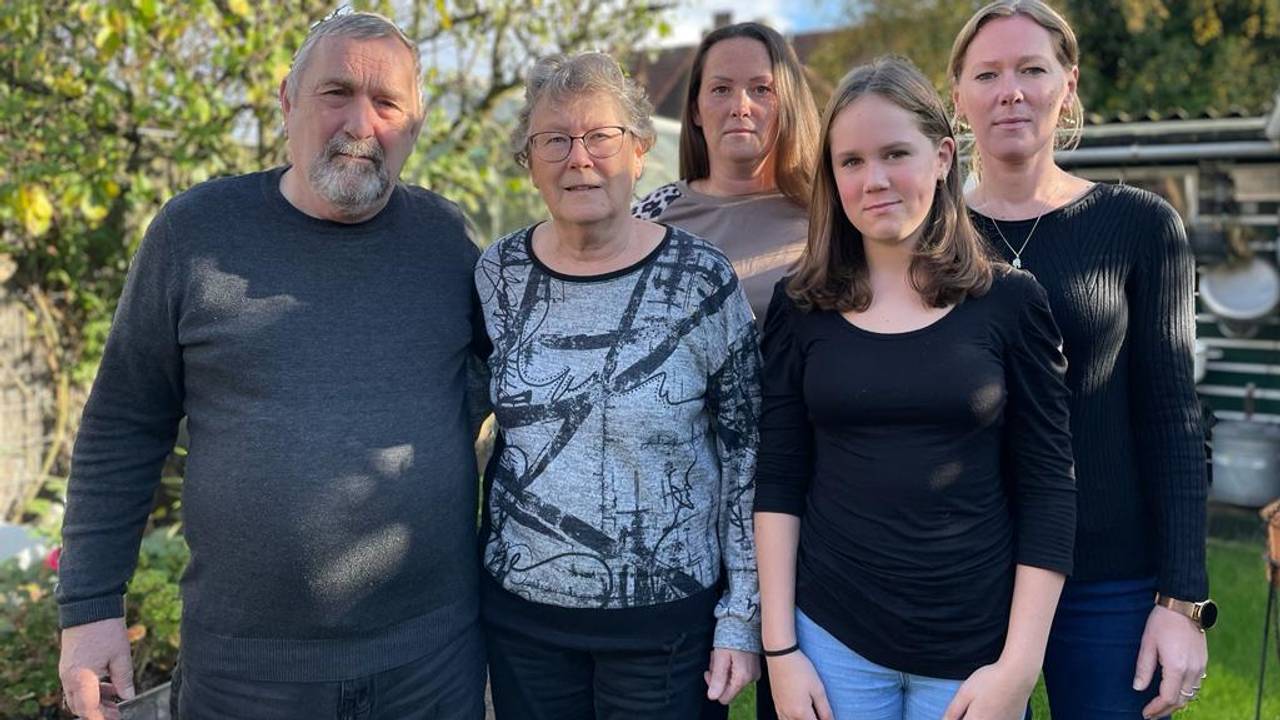Laura Brunenberg (36) and her 13-year-old daughter struggle with the consequences of Q fever every day. Not only that, Laura’s father, mother and her sister Stefanie have also become chronically ill due to the bacteria. The family seeks help from the municipality of Eindhoven, but gets almost nothing done. While in other municipalities help is available for Q fever patients.
It is 2009 when Laura’s father carries out daily maintenance on milking machines, including at goat farms. At that time Q fever is prevalent. This bacteria can be transmitted from sheep and goats to humans. Through the air, feces and also through milk.
“My father did not wear protective clothing at that time, because they thought it was not necessary. He took off his overalls at home, my mother patted them out before putting them in the washing machine. He unknowingly brought the Q fever bacteria home with him. He still feels very guilty about that,” says Laura.
“Our complaints were so similar, it was almost inevitable that we all had QVS.”
“At the time I got infected, I was pregnant with Jainey. I passed it on to my unborn child through my blood. Without us knowing it, she had had complaints from birth.” The girl was not one of the fastest and cried a lot. “But hey, that’s what babies do. And not all babies walk at the same speed.”
Years passed and after it turned out in 2015 that father had QVS (Q fever fatigue syndrome), pieces of the puzzle fell into place. “Our complaints were so similar, it was almost inevitable that we all had QVS.”
Yet it took a long time before the diagnosis was official. Many conversations with all kinds of doctors followed. Ultimately, a test in 2018 was decisive.
The whole family has complaints of fatigue, painful joints and headaches. “Some days are better than others, it is impossible to predict. Jainey does go to school, but she also has days when it doesn’t work out.” She was forced to work less.
“There are municipalities that pull out all the stops, but also municipalities where it is very difficult.”
In recent years, as a family, they have had several conversations with WIJeindhoven. This agency arranges care and support for residents on behalf of the municipality. “Means to follow distance learning, a disabled parking card, a bicycle with pedal assistance: it would make life so much more pleasant for Jainey. But according to the municipality we are not entitled to anything.”
The funny thing is, in many other municipalities, Q fever patients are actually helped, as Laura heard during a peer group meeting. The Q-support foundation, which represents the interests of patients, recognizes this. She stands up for Q fever patients from 165 municipalities, says director Annemieke de Groot.
“We see that patients in one municipality are better off than in another municipality. They can give their own interpretation to the policy. There are municipalities that reimburse exercise programs for Q fever patients and pull out all the stops, but there are also places where it is very difficult to get anything done.”
According to De Groot, why these differences exist depends on what kind of rules the municipality has. “Sometimes there is a lack of knowledge within a municipality, the subject is no longer on everyone’s mind. It often differs which official you meet.”
Laura especially hopes that there will be more recognition from the municipality of Eindhoven. “That they look at what they can do for us, instead of ‘no, that’s not possible.’”
WIJeindhoven states that it cannot respond to individual cases due to privacy. She is not aware that she is less generous to Q fever patients than other municipalities. There is no specific policy for Q fever patients, because it looks at the support people are looking for and not at the clinical picture. She refers to the municipality of Eindhoven for the regulations.
The family plays a game of cards together (photo: Raymond Merkx / Omroep Brabant).
2023-10-25 06:17:26
#entire #family #fever #municipality #hard #find
